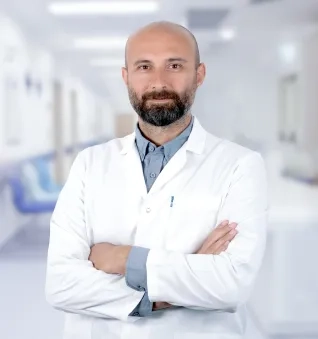Alo Yeditepe
Alo Yeditepe
Common Misconceptions About Cancer
For someone who has recently been diagnosed with cancer or is very afraid of getting the disease, the world, especially social media, is full of scientifically incorrect information about how to avoid it, how to treat it, and what to fear about it. How much of what they say about cancer is true? Yeditepe University Koşuyolu Hospital Medical Oncology Specialist Prof. Dr. Bala Başak Öven told the common misconceptions about cancer.
“Cancer is always fatal”
No, cancer is not always a fatal disease, it depends on the stage. When cancer is diagnosed and treated early, full recovery can be achieved. In recent years, with the development of treatment methods, the rate of loss of life has decreased significantly.
“Once cancer is diagnosed, it always recurs”
It can fully heal when the cancer is caught early and treated with preventive treatments. The recurrence of cancer varies according to the type and prevalence of the disease. Although the risk of recurrence is higher in advanced-stage diseases, the risk of recurrence decreases significantly after the first 2-3 years. When 5 years without the disease have passed, it is often possible to talk about a full recovery.
“Cancer is contagious”
Cancer is definitely not an infectious disease. Methods such as chemotherapy and radiotherapy used in the treatment of cancer itself do not harm the people around the patient.
People think “Anything can cause cancer, whether you are sad, happy, or malnourished, why should I bother trying to protect myself?” So, “Does everything cause cancer?”
Although the risk factors for each cancer are different, it should not be assumed that cancer will develop in the presence of risk factors. These risk factors can be estimated to cause disease, but it is not possible to prove this. Age, genetic predisposition, or family history are among the risk factors that cannot be changed. However, smoking, obesity, not exercising, alcohol, and unhealthy nutrition (such as low-fiber nutrition) are among the changeable risk factors. Other risks are radiation exposure, exposure to excess sunlight, or various viruses. Although stress is not directly associated with cancer, it is known to adversely affect the immune system.
“Chemotherapy has terrible side effects.”
While chemotherapy kills cancer cells, it can also damage normal cells, so organs such as the digestive system, bone marrow, hair, and skin, which are the fastest-dividing cells, are more affected. The most common side effects are hair loss, nausea, vomiting, and a decrease in blood values. If the side effects that may occur due to chemotherapy are known in advance, it is possible to take precautions against these side effects. Chemotherapy-related side effects are side effects that can be completely corrected to a large extent.
“No more hair growth after chemotherapy?”
Hair loss is a reversible side effect and hair begins to grow back 1-2 weeks after the end of treatment. Not all chemotherapy causes hair loss.
“Deodorants cause breast cancer”
Deodorants, cosmetics, or hair dyes used today are not associated with cancer.
“Cancer is always genetic”
Some cancers, such as breast cancer, ovarian cancer, bowel, and prostate cancer, are known to be inherited. However, the possibilities of these cancers being inherited are only around 5-10%. The presence of mutations in genes such as BRCA1,2, especially in cancerous individuals, increases the likelihood of cancer in other family members.
“It is better to live without knowing you have cancer”
It is an indisputable fact that early diagnosis saves lives in cancer patients. The sooner the disease is recognized, the more likely it is to be treated. Therefore, knowing the disease, being treated, and detecting the disease early when the disease recurs with regular follow-up makes full recovery possible. In addition, knowing the disease allows you to avoid the complications that may occur and the risks that may harm the disease.
“Some herbal teas protect from cancer”
The usefulness of known plants or alternative methods used in the treatment and protection of cancer is uncertain. However, the use of plants such as grapefruit and nettle during treatment can interact with chemotherapies in the liver and reduce their effectiveness. Even well-known green tea can negatively affect liver function during treatment. Since some plants contain hormones (soy, etc.), they may pose a risk for breast cancer. On the other hand, although not directly related to the disease, ginger may reduce nausea due to chemotherapy. While fresh vegetables and fruits consumed in season increase immunity and positively affect the course of the disease, they can also be preventive for obesity, which poses a risk for cancer.
Pregnant women cannot receive cancer treatment
Pregnancy can mask the symptoms of cancer, causing some cancers, such as breast cancer, to be diagnosed later. Especially after the first 12 weeks when the baby's organs have completed their development, many chemotherapy drugs can be used because they do not adversely affect the baby's development. However, smart drugs, radiotherapy, and hormone drugs are not used during pregnancy because they are harmful to the baby.
I do not smoke, so there is no risk of lung cancer
Smoking is one of the leading risk factors for lung cancer. But lung cancer can also occur in people who have never smoked. In addition to smoking, other factors such as radon gas, asbestos exposure, air pollution, genetic predisposition, and radiotherapy history are risk factors for lung cancer.
Biopsy and surgery cause cancer to spread
Biopsy means taking samples from the cancer tissue with a needle or a small incision for pathological examination. Cancer treatment differs for different types of cancers of each organ. Hence, it is necessary to perform a biopsy before starting an oncological treatment. It has nothing to do with the spread of the disease. The surgery is performed to provide complete recovery for cancers in a single place that is not common. A situation such as the surgery causing the spread of cancer is not true.
Eating sugar leads to cancer cell growth
There is no evidence that sugar consumption makes cancer cell growth. Sugar and sugary drinks cause weight gain due to high calories, therefore they pose a risk for obesity-related cancers (breast, prostate, and colon cancers).
About
Faculty and Year of Graduation:
İstanbul University, Cerrahpaşa Faculty of Medicine, 2000
”
See Also
- How Should Patients Receiving Chemotherapy Eat?
- What is Chemotherapy? How is it Applied?
- Is Cancer a Treatable Disease?
- Nutrition in Cancer
- Cancer Treatment Methods
- Treatments that Reduce Life Loss in Cancer Give Hope!
- How to Choose Baby Clothes?
- Do Individualized Treatments Offer Hope for Cancer?
- The Hope of ‘Immunotherapy’ in Advanced-Stage Cancer Treatment
- Cancer Statistics Reveal the Importance of Protecting Against Cancer
- New Research Points to the Important Issues in Breast Cancer
- Found Out That She Had Cancer After Her Accident, and Immunotherapy Was Her Solution!
- Life Support Booklet for Oncology Patients
- False Facts in Cancer
- Lung Cancer
- Most Common Cancers
- New Treatment Approaches Promising in Metastatic Breast Cancer
Alo Yeditepe





